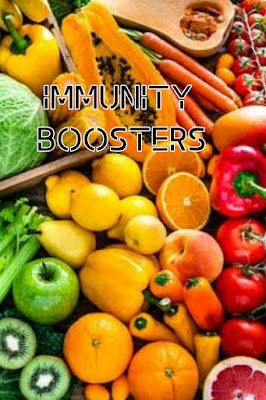INFORMATION ABOUT COVID- 19 "THE SYMPTOMS"
INFORMATION ABOUT COVID- 19 "THE SYMPTOMS"
The spread of the coronavirus, now called COVID-19, is causing alarm worldwide.
World Health Organization has declared a global health emergency, and many countries have a rise in confirmed cases.
In the US, the Centers for Disease Control and Prevention (CDC) is advising people to be prepared for disruptions to daily life that will be necessary if the coronavirus spreads within communities.
THE SYMPTOMSCommon corona virus symptoms include:
- fever
- dry cough
- fatigue
Some people also get:
- sore throat
- congested nose
- nausea and gastrointestinal symptoms
- shortness of breath
- flu like aches and pains
THE MAIN PROBLEM WITH THE CORONAVIRUS is that you are contagious when you do not have symptoms.
These symptoms generally appear three to four days after exposure but can be up to 27 days later!
GENERAL PRECAUTIONS
GENERAL PRECAUTIONS
According to the WHO, coronaviruses may survive on surfaces for just a few hours or several days, although many factors will influence this, including surface material and weather.That’s why personal preventive steps like
- wiping down often-touched surfaces with disinfectants or a household cleaning spray, are a good idea.
- stop shaking hands when we great people.
- stop kissing on the cheek because this disease is so transmissible. The only way to avoid it is to not have any contact with anybody!
- The main advice at the moment seems to be to wash our hands often, for 20 seconds or more, with soap and water.
- To prevent infection, people should keep at least one meter away from people with respiratory symptoms.
- who are ill should avoid coughing or sneezing directly onto others."
- Avoid infection by not traveling to epidemic areas.
- Infected people should use mouthwash.
- Frequent and thorough hand washing and good general hygiene are recommended.
- Preventive measures are especially important for people with weakened immune systems.
- In cases where covid-19 causes pneumonia, hospital treatment will often be necessary.
- Oxygen supplementation and breathing aid, including the use of a respirator may be necessary.
WHAT I WILL BE DOING:
I will be avoiding all non essential travel.
I will be avoiding all large events and gathering places such as universities, the library and the shopping mall.
If I was still working I would be asking to work from home.
I am trying to be my healthiest self by eating well and exercising.
I have already added magnesium and Vitamin D supplements to my diet.
will now add a daily multivitamin as well and garlic tablets. It can't hurt and it may help fight off infection.
Eating garlic appears to offer the best of both worlds, dampening the over-reactive face of the immune system by suppressing inflammation while boosting protective immunity, for example natural killer cell activity, which our body uses to purge cells that have been stricken by viruses or cancer. In World War II garlic was evidently dubbed ‘Russian Penicillin’ because, after running out of antibiotics, that’s what the Soviet government turned to.
For food, you can just buy two or three weeks’ worth of shelf-stable food that you would eat anyway, and be done; this could include canned food like beans and vegetables, pasta, rice, cereals or oats, oils/fats, nuts and dried fruits.
It’s really not that hard because we’re talking two-three weeks, so whatever you get is fine.This information is of general nature collected from reliable sources. please seek medical assistance in case of any emergent symptoms.





Comments
Post a Comment
Comments and suggestions always welcome